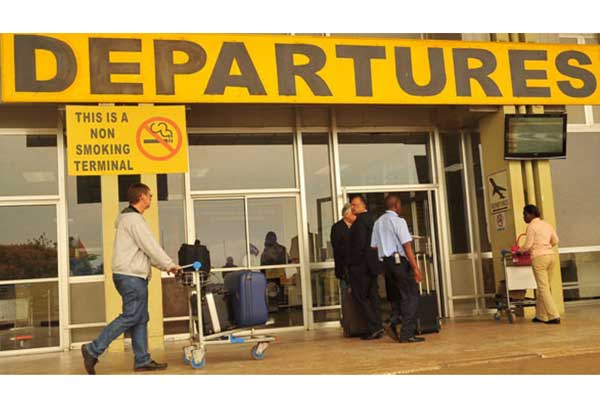Why MPs want to tax everyone flying out

People flying out of the country will be charged about Shs35,000. PHOTO | COURTESY
What you need to know:
- The tax known as “Tourism Development Levy” is among a string of recommendations put forward by Parliament’s Committee on Tourism, Trade and Industry in a report under the stewardship of Mr Mwine Mpaka, the Mbarara City South MP.
Parliament has resolved to impose a mandatory $10 (about Shs35,000) tax on everyone flying out of the country.
The tax known as “Tourism Development Levy” is among a string of recommendations put forward by Parliament’s Committee on Tourism, Trade and Industry in a report under the stewardship of Mr Mwine Mpaka, the Mbarara City South MP.
The proposal was considered after the committee engaged stakeholders in the sector to resuscitate businesses that have been hit by the Covid-19 pandemic.
The proposal mirrors similar policies that Kenya and Tanzania have in place to support and grow their domestic tourism sectors.
Parliament overwhelmingly supported the proposal when Mr Mpaka presented the report last week, saying it will enable the tourism sector recover from the financial shocks.
Once collected, the money will be channeled to Post Bank Uganda and managed by the ministries of Finance and that of Tourism.
All the aforesaid government entities have to draft a concrete management plan and procedures through which the money will be accessed by the targeted beneficiaries.
Seventy per cent of the total collections will be shared among members in the private tourism sector.
The legislators also want 20 per cent of the collections made off every air ticket to be earmarked for marketing Uganda’s tourism sector.
The remaining 10 per cent will be channelled to the tax body, Uganda Revenue Authority (URA).
Parliament has also demanded that the Uganda Wildlife Authority ensures that tour operators in the private sector reduce charges that are imposed on tourists.
A section of tour operators have also suggested that government scraps heavy taxes imposed on them.
“If government can intervene and tone down on the taxes imposed on us, then the call for tour operators to reduce the costs will make sense,” Mr Joshua Ampumuza, the spokesperson of the Uganda Tourism Association, said.
He added: “Otherwise, tour operators are forced to charge in such a way because they are pressed by the need to remit high revenue to [the] government and also break even in the sector. They also have other administrative costs that they shoulder.”
Other tour operators fear that the initiative may not register the intended objective if the management of the money is placed solely under the government. They want players in the private sector to have a hand in the management of the money.
Mr Isaiah Rwanyekiro, the chief executive officer of Breathtaking Uganda, also reckons the proposal will not be a silver bullet since few Ugandans fly out of the country.
“The idea of the levy is welcome; its execution is the problem. And also the money to be generated may be little because very few Ugandans actually fly out of the country,” Mr Rwanyekiro said, adding: “You find that most of the people who fly out of the country are government officials or persons going to do government work. This, therefore, means the government will be taxing itself.”
The lawmakers on the Trade committee in their report said the government had not implemented the levy as provided in the law and was, therefore, proposing the levy as provided in the Uganda Tourism Act.
“The committee notes that the minister has, since 2018, not yet operationalised the imposition of the tourism development levy. lf the levy had been fully operationalised, it would have provided a source of funds to cushion the sector during these hard times of the pandemic,” the report states in part.
In defence of the levy, Mr Mpaka said: “Section 20 of The Uganda Tourism Act, No.2 of 2008 provides for a tourism development levy, and gives power to the Minister to operationalise this levy.”




